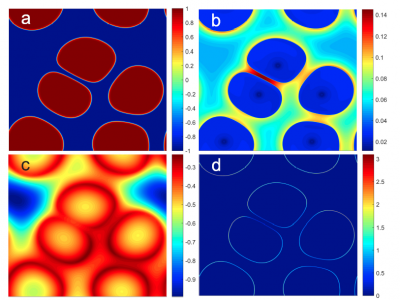Professor Tai-Hsi Fan (UConn Dept of Mechanical Engineering) along with colleagues at the UConn School of Pharmacy, Regeneron Pharmaceuticals, and MedImunne published an article describing “Phase-Field Modeling of Freeze Concentration of Protein Solutions” in the journal, Polymers (2019) Vol. 11, article 10.
